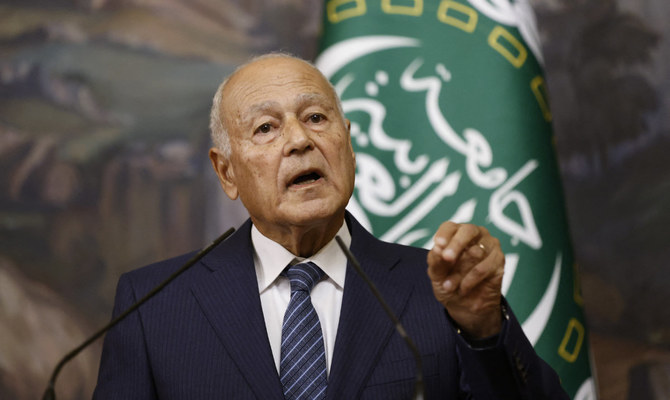CAIRO: Arab League Secretary-General Ahmed Aboul Gheit said the recent decision by some countries to suspend the funding they provide for the UN Relief and Works Agency for Palestine Refugees in the Near East was wrong from both a humanitarian and security standpoint, and a morally flawed position to take.
He warned that ending the agency’s role would endanger the entire region and said it would be a dangerous move that suits the long-running ambitions of the Israeli right wing to dismantle UNRWA and persuade the international community to step back from its responsibility to help address the issue of Palestinian refugees.
A number of major donor countries, including largest donor the US, suspended funding for the agency following allegations in January by Israel that 12 UNRWA employees played a part in the Oct. 7 attacks by Hamas.
Aboul Gheit said the aim of the claims was to destroy the agency at a particularly dangerous time, and he praised the countries that had not responded by cutting donations to the agency. In particular he highlighted the additional funding provided by Spain and Portugal, and the refusal of Norway and Ireland to halt their contributions.
He urged countries that had acted quickly to suspend funding to review what he described as wrong and dangerous decisions.
Gamal Rushdi, a spokesperson for Aboul Gheit, said the Arab League chief was disappointed that some of the main donors to the agency had acted so swiftly to suspend funding despite the severe humanitarian crisis in Gaza.
“It also does not reflect an understanding of the nature of the role played by UNRWA toward approximately 5.6 million Palestinian refugees in the West Bank, Jordan, Lebanon and Syria, as well as the Gaza Strip,” he added.
UN Secretary-General Antonio Guterres, in consultation with UNRWA Commissioner General Philippe Lazzarini, has tasked an independent review group led by Catherine Colonna, a French former foreign minister, to assess whether the agency is doing everything in its power to ensure the neutrality of its staff and to respond to serious allegations when they are made.
This independent, external review will run in parallel to an investigation launched by the UN Office of Internal Oversight Services into Israel’s allegations.
Meanwhile, Egypt said its intensive efforts to end the fighting in Gaza and protect the lives and rights of Palestinian people continue around the clock.
Diaa Rashwan, chair of the State Information Service, said authorities in the country are doing their utmost to broker a truce. He added that Egypt will continue to discuss the details of a proposed framework for peace with all parties in an attempt to reach an agreement as soon as possible.
Under the proposal, he said, Palestinian prisoners and Israeli hostages would be exchanged in stages and “humanitarian support for our brothers in the Gaza Strip will be intensified.”















